With so many books being made into movies and series nowadays, it is easy for producers to lose sight of making an accurate adaptation in favor of what they think will make more money. Many forget about the people who have read the books and look forward to seeing their favorite characters and stories come to life, not just in their imaginations. Book adaptations are always better when they stay true to the original source material.
It is rare for us to see an adaptation of a book follow the story perfectly, something is always different. This can be seen in the adaptations of the Harry Potter series by J.K. Rowling. While many fans did enjoy the movies there were still so many changes that were crucial to the books that were non-negotiable to some fans.
For instance the fifth book of the series, Harry Potter and The Order of the Phoenix, is the second longest book yet the movie somehow is the shortest of the collection, meaning so
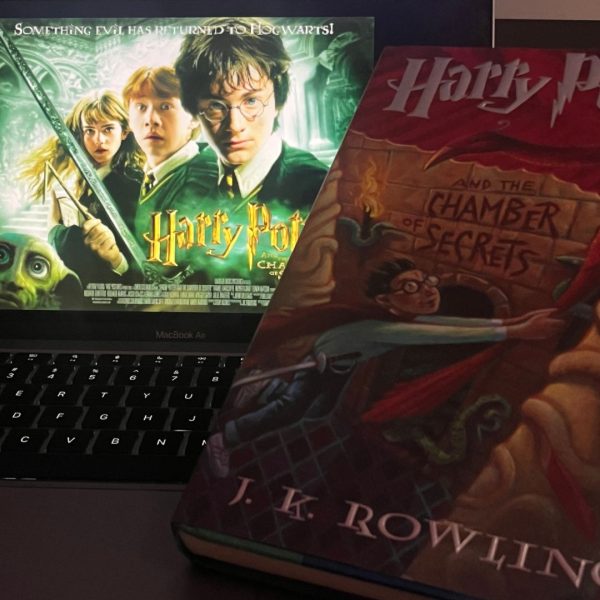
much was left out. Book adaptations are supposed to capture what the original story was trying to convey, not leave out so much of the story.
“While the film makes many changes from the book, all of the changes feel purposeful and I’m not upset with any of them,” says Janie Walenda, a student at Cedarville University, in her review on The Ballad of Songbirds and Snakes, a recent addition to the book adaptation universe.
It is well known that there are many more movie watchers than there are readers. People who have never heard of the original story may love the movie and its story. It is disappointing that producers will make adaptations that deviate from the story all for a few extra bucks.
“A great story turns into a movie easily but no matter what the movie can never capture everything that’s in a book,” says Mrs. Hayes, Millikan’s Librarian.
In the years to come I hope to see more and more re-imaginations from books that stay true to its source material. As a reader myself it makes my heart so happy when my favorite books come to life in a true manner and I know the same is for the other readers of the world.



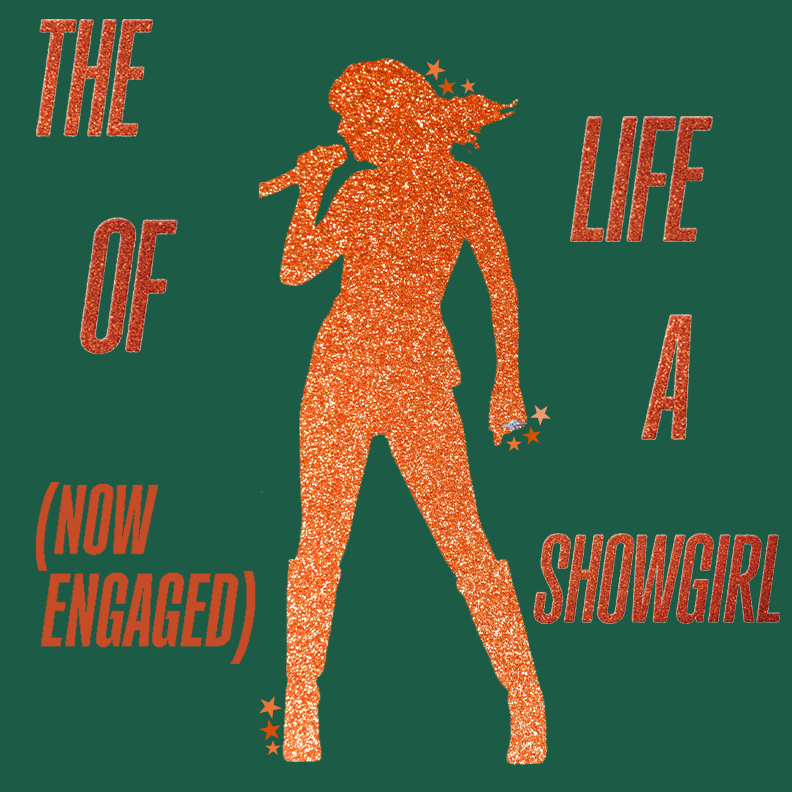



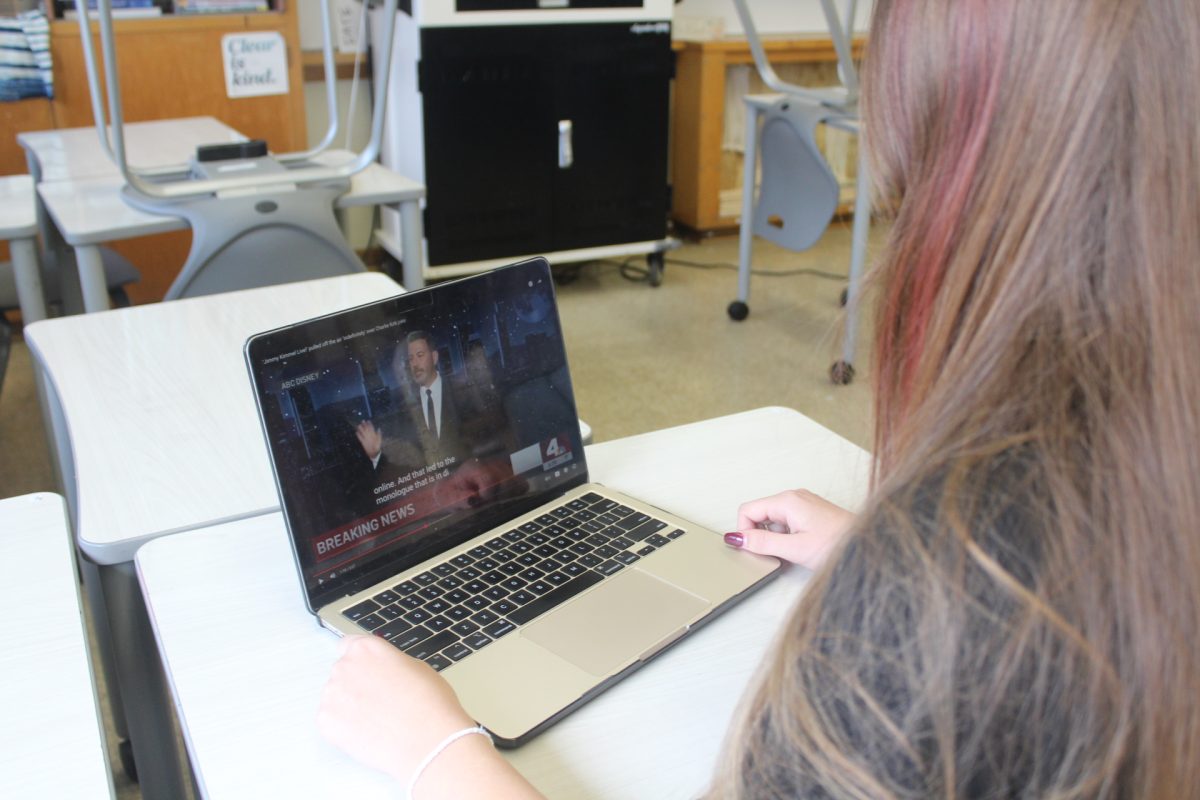



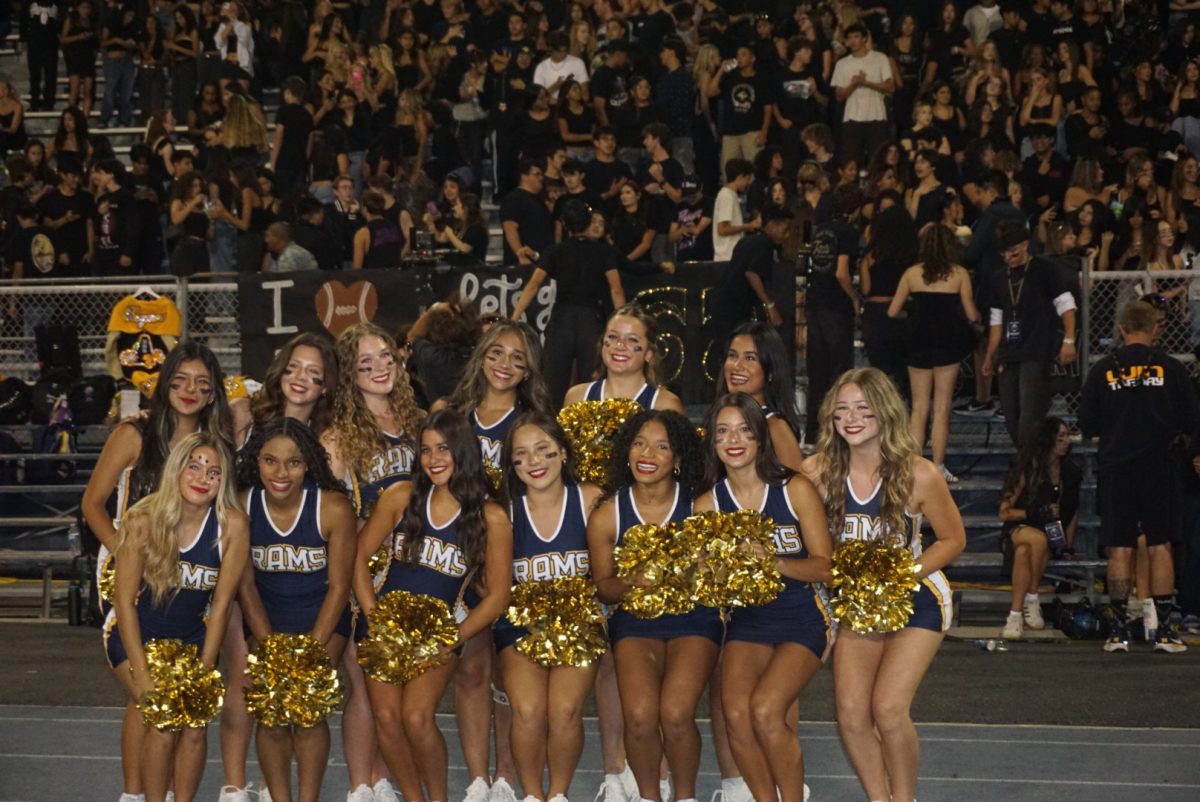








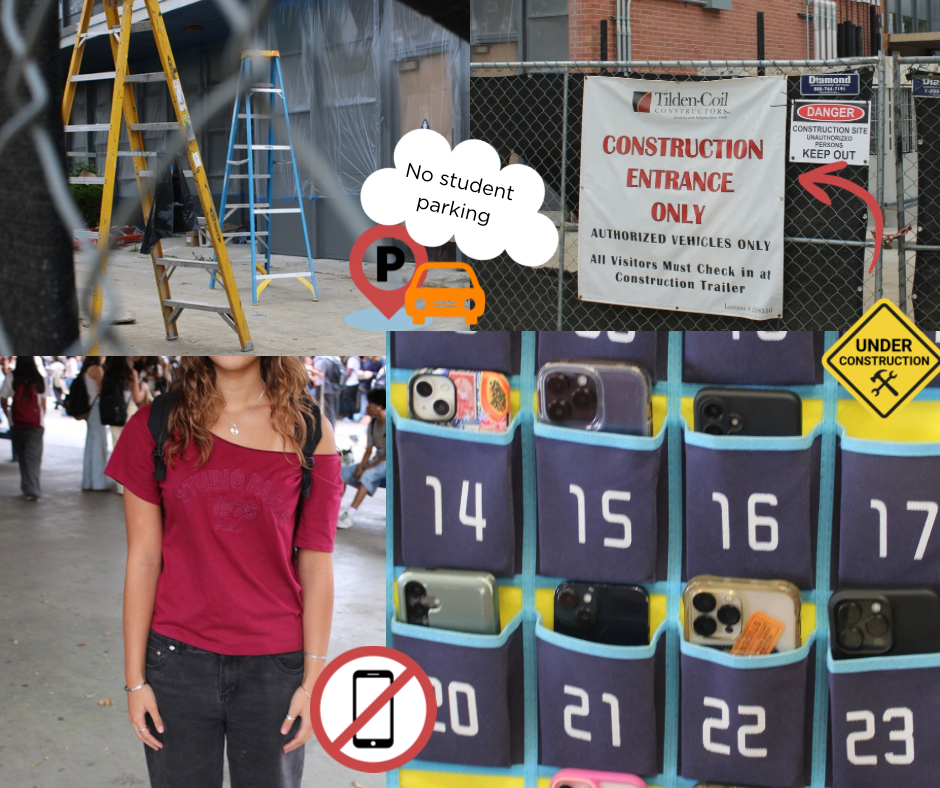












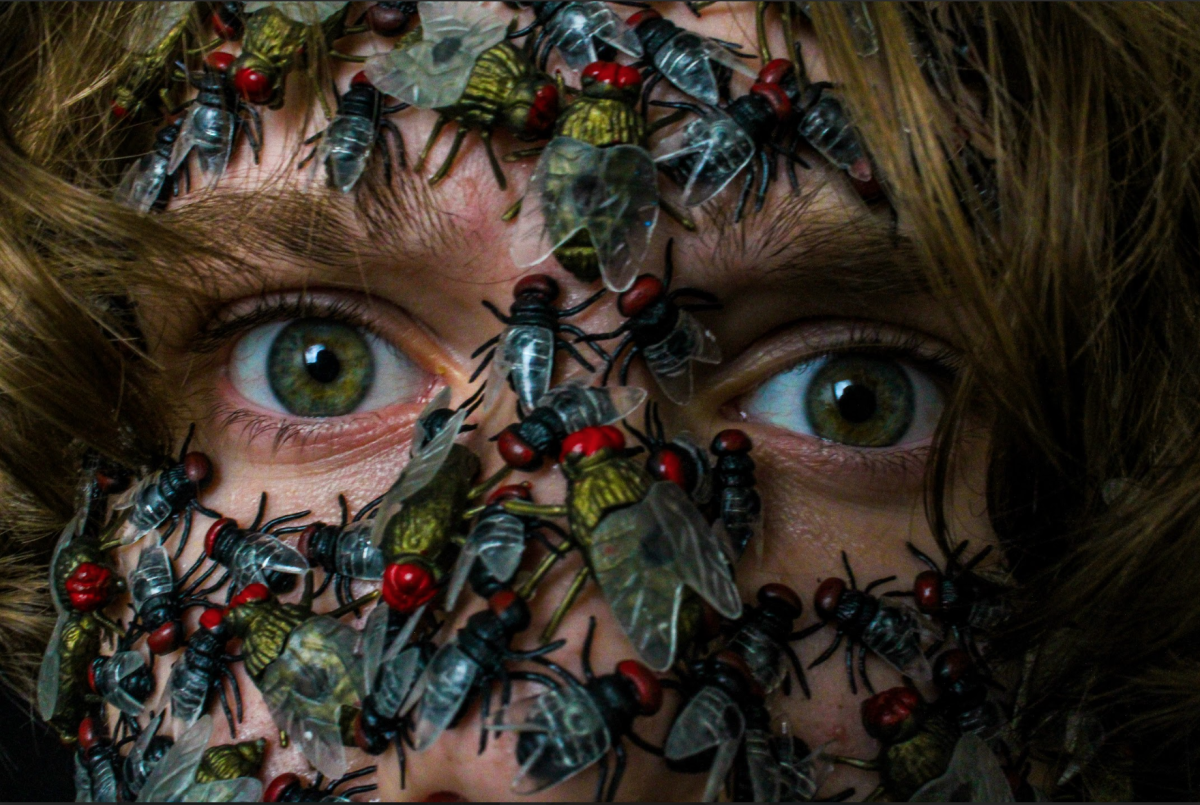






Grace Cozatt • Apr 2, 2024 at 6:30 pm
Castillo’s article explains how often movie adaptations of a book will deviate from the source material and how many fans are left disappointed. I quite enjoyed this article. It provided differing perspectives on inaccurate book to film adaptations. I wish the article had provided even more examples of book adaptations that were lacking, specifically movies like Ready Player One or Percy Jackson and the Lightning Thief. It shows just how off the rails these adaptations can get. Many book to movie adaptations feel as if the writers have never even read the book and rather just looked over a quick summary of it. The article itself kept it short and sweet by getting to the point quickly. The article leaves the reader thinking about movies they’ve watched without reading the book it was based on. Sometimes people don’t realize just how much of an awesome story they’re missing without reading the book. Overall this article wa very interesting and thoughtful.
Jensen Calderon • Mar 25, 2024 at 1:50 pm
On March 15th, Kayla Castillo wrote the opinion article “The Age of Adaptations.” The article covers the flaws and issues that come with books that get adapted to movies. She addresses what seems to be the main downside of book adaptations, which according to her, are the large changes from the source material. She does a pretty good job explaining why the changes often lead to disappointing results for readers, since so much of the story is being changed in exchange for more money for the producers. I agree with her take on it personally, and I like that she quoted other readers who feel similarly. It helps show that this is a pretty wide spread opinion that a lot of readers share. I do like that she added her own hopes for future adaptations and the importance that it has to her. In a way her own personal thoughts give the article a sense of passion, and it helps to also explain why she feels the way she does on the subject she is describing.
Olivia Hanniff • Mar 20, 2024 at 7:33 pm
On March 15, 2024, Kayla Castillo published and wrote an article titled, “The Age of Adaptations.” Castillo’s opinion article elaborates on her claim of, “Book adaptations are always better when they stay true to the original source material.” Throughout the article, Castillo does an excellent job of adding in direct quotes from Millikan High School’s librarian and a student at Cedarville University. This adds credibility and strength to Castillo’s opinion by adding in different perspectives other than her own. However, I suggest Castillo adds more quotes from other Millikan students to give the perspective of students rather than a college student or a librarian who may be biased. Additionally, I applaud Castillo for adding in her strong opinion and wishes for movie adaptations in the future. This allows the reader to further connect with similar movie wishes as Castilllo. On the other hand, I advise Castillo to add more books to movie examples other than the “Harry Potter” series. As a result, more examples will allow the reader to connect with the claim on a personal level. Lastly, I would recommend adding more pictures or other statistical visuals since the topic is about movie adaptations. Therefore, it will enhance visual aesthetics and the flow of the argument.
Faith Mack • Mar 20, 2024 at 12:14 pm
On March 15, 2024, Kayla Castillo wrote an article titled “The Age of Adaptations”. In the article the author describes how book to movie adaptations stray from the original story-line of the novel so that it can be consumed by movie goers. These adaptations usually leave out fan favorite plot-lines, characters, or events from the books that weren’t as important to the story telling. This can leave many fans of the book disappointed. Very rarely are people grateful for the changes made for the movie adaptation.
As a fan of the Harry Potter series the movies did leave me greatly disappointed so much so that I haven’t watched any of the movies beyond Harry Potter and the Goblet of Fire. On the other hand, all of the books were fantastic and I ended up finishing them very quickly.
Meanwhile, I believe that the Hunger Games movies were the most true to the books. Every time I watch them it’s like I can see the exact plot-lines playing out with almost all of the detail and accuracy of the book (except for Buttercup). The characters were portrayed perfectly and almost nothing was changed. The downside of it, is that oftentimes the characters are repeating exact words from the book, which was a common theme in The Fault in Our Stars, and sometimes make the movies boring. Overall, I would personally love to see more movie adaptations similar to the Hunger Games that do the book and the fandom justice.
Harrison Bruechert • Mar 20, 2024 at 12:04 pm
On March 15, 2024, Kayla Castillo wrote a curious article titled “The Age of Adaptations”. The argumentative article focused on the plethora of treacherous book-to-movie conversions that are occurring in recent years. While writing, Castillo claims that all movie adaptations that omit information from the book are solely in it for the money. While this may benefit the cast and crew of the production, those interested in the book disapprove of the minuscule changes. The author writes in a fashion that includes various local sources, who comment on the effect of the alterations. Castillo does a fantastic job of stating an under dogged opinion. While Castillo’s article is mainly focused on the negative side of adaptations, she still brings in a concession, showing true understanding of essay formatting. One concern I have with the author’s writing is the lack of analysis placed under quotes that deal with the article’s topic. Including analysis would reject idleness and take a more firmer stance on the issue.
Finn Benitz • Mar 20, 2024 at 10:56 am
When reading the article, I appreciated the insightfulness about how and why movie adaptations are generally less detailed and often stray from the original source material. On top of that, I felt that adding quotes that refute the initial claim was a helpful and necessary inclusion. By acknowledging separate perspectives, it strengthened the credibility of the article’s stance. On a different note, when discussing how potentially great movies are many times sold out for profit, I would have been interested in specific examples of this occurring and how these adaptations failed to represent the literary reference. Similarly, I would have also loved to learn instances of film adaptations that generally stuck to the source material and succeeded in amounting to the book’s expectations. After everything I’ve read, I’m still curious about how film representations can fully capture the book’s essence regarding the inclusion of all of the different information and aspects of the story while still retaining a similar runtime. To clarify, would it be favorable for movie adaptations to leave out certain parts of the book but keep the depth and detail of the remaining scenes? Or would it be better to cram in as much as possible, even if that meant losing the thoroughness of the story? Overall, the article was very meticulously crafted in a way that raised attention to an issue and gave perceptive detail and opinion on it.
Sincerely,
Finn Benitz
Simone Jackson • Mar 20, 2024 at 9:46 am
This well-written article provides opinion and insight on the prevalent topic today of turning books into movies and television series. The article leads with an explanation of how when remaking beloved books into film and television, producers often lose sight of creating with accuracy. It presents the common occurrence that many entertainment producers are primarily concerned with bringing in a large sum of money, instead of telling the story effectively. The article discusses how many die-hard fans of books are much too frequently disappointed when the adaptation does not meet their expectations. I can personally relate to this occurrence, as I enjoy reading books in my free time and have been repeatedly let down by an adaptation of one of my favorites being led far too astray from the book used as “inspiration”. The publication then presents the fact that it is indeed difficult for an adaptation to retell a book changing nothing about it. It provides the example of how the Harry Potter movies left out so many crucial storylines and scenes that fans of the series were dissatisfied with. The article then goes on to highlight how some people believe that film producers are simply doing what they feel is necessary based on their creative opinions, and that they have to satisfy more movie watchers than book readers. The author concludes with her personal opinion of how she wishes future adaptations will attempt to align more with their source material and honor the original fans of the book. Overall, this article did a very thorough job of explaining an issue that I can relate to regarding the increasingly relevant topic of adaptations.
Sincerely,
Simone Jackson
destiny deleon-vaivao • Mar 19, 2024 at 1:55 pm
Dear Corydon Editor,
On March 15, 2024, Kayla Castillo wrote an article titled “The Age of Adaptation”. In this article, Castillo introduces the issue that movies that are created based on books, are often not represented in a true manner. She does a great job in using relevant evidence that the audience can relate to. For example, The Harry Potter books and series. I like how she chose a topic that many readers can relate to. She establishes her opinion which many can agree with, that she hopes to see more productions based on books represented truly and more accurately. Castillo also does a great job including multiple outside sources and quotes from students, teachers, and staff on campus and people outside of campus to further her claim. To conclude, Kayla Castilo did a great job constructing this article about somewhat inaccurate representations of books in movies. She does an excellent job making her article easy to read and relatable to her audience.
Sincerely,
Destiny DeLeon-Vaivao
samara • Mar 19, 2024 at 11:48 am
Castillo describes that nowadays books are being made into movies and series. These producers are making adaptations of books that do not seem to be accurate. As many people have read the books that are being made into movies they are expecting to see their favorite characters and scenes come to life. As Castillo explains it seems as though the movies leave out a lot of the parts readers are expecting to see. Castillo uses the Harry Potter series as an example. Castillo talks about how the Harry Potter movies are good, but there were several crucial scenes from the books that were left out. The fifth book of the Harry Potter series is the second longest book yet it is the shortest movie. This means that several parts from the book were left out. Castillo believes that book adaptations are supposed to capture the original story and not leave out so many crucial parts. Castillo provides a different viewpoint of people who do not read books. Some people just watch the movies and they will love the movie even though they do not know the original story. In the years to come Castillo wants to see more book adaptations come to life and she hopes that they stay true to the original story line.
Caroline Klein • Mar 19, 2024 at 11:31 am
March 19, 2024
Dear Corydon Editor,
On March 15, 2024, Kayla Castillo wrote an article titled, “The Age of Adaptations”. The article thoroughly examined and explained the many issues that come with the adaptations of books into movies. Castillo gives many examples of how making popular books into a movie franchise often does more harm than good for the original fans. However, the author could strengthen their argument by including a counterargument stating that in some cases, movie adaptations are even better than the books they were created for. Including this argument would set Castillo up to go more in-depth with how important it is that the producers and directors of movies stay in contact with the author’s original wishes and portrayal of the book in movie form. Overall, the article was very informative and descriptive, as it reminded me that the phrase, “The book is better than the movie”, is more often correct, than not.
Sincerely,
Caroline Klein
Sofia Matin • Mar 19, 2024 at 11:26 am
I want to start by saying that the topic was an amazing choice, as it is an issue that many can relate to. The inaccurate adaptations of movies have long been an issue in our age of film adaptations. While I have had many personal conversations discussing this issue, I have rarely seen it published. The key points and counterclaim are all relevant, and the topics are interesting and leave room for thinking after.
However, I did notice some grammatical and punctuation errors. Some sentences lacked a comma, and others needed quotation marks around a title. Another minor issue could be labeled as an inconsistent tone. At some points within the article, the author spoke formally and used formal language. At other times, Castillo used informal language, including turns of phrase and sentences that would be better taken as parlance. The majority of the article is well-written, but the strange jumps from formal to casual can be off-putting and confusing to one attempting to better interpret the article.
Overall, I very much enjoyed the article. It is, in my opinion, an important topic that would benefit from being voiced in the media more (As Castillo did). While there may have been some minor errors, the overall effectiveness of the article was pleasing, and inspired thinking after finishing the article. Castillo brought up a topic that many have an opinion on, allowing room for discussion. It was a very enjoyable article.
Ezekiel Zaldivar • Mar 19, 2024 at 11:25 am
On December 14, 2023, Payton Miller wrote an article titled “The Psychology of Being Scared”. This is a well written opinion article that effectively informs and engages the reader throughout the text. The hook was a good way to grab the reader’s attention and adding the question “Why do people love to be scared?” makes the reader think about something they may have not thought about before. Including a quote from Mrs. Hines makes the article more credible and makes the reader trust the information more. Additionally, it was a good idea to include references to texts that students have read through their english classes because they can make connections with their background knowledge of the texts and new information in the article.
Personally, I don’t have a preference for horror movies, but every once in a while a horror movie can be interesting. I agree with Stephen King because I think people like horror movies because it’s not something that would happen normally in their everyday lives so people are drawn to the fact they get to see something different.
Andrea Mercado • Mar 19, 2024 at 10:02 am
This article highlights the books being made into movies and the differences between the actual book and the movie itself. The article does a great job in providing an example like the adaptation of the Harry Potter books. Castillo did a wonderful job in providing and collecting different opinions about the book adaptations. I agree that no movie will ever fully capture the whole story of the book because of how much the directors leave out in the movie.
I also have noticed that the movies tend to leave out a lot of the details that are in the book itself. They sometimes take out scenes or characters and replace them with their own or just completely erase them. This upsets me and many others because it’s something that fans look forward to. To some degree, I prefer the book over the movie because the book itself tends to have a lot more detail than the movies. You also get more of an insight into the main character’s thoughts and feelings in the book itself than the movie.
Hayley Skibinski • Mar 19, 2024 at 9:38 am
I’m elated someone finally releases an article based off of the countless movie and show adaptations throughout these past few years. The most popular example of book to movie adaptations that were sub-par, Castillo mentions Harry Potter as a mediocre adaptation that left Harry Potter fans disheartened. It may be confusing as to why movie producers are now trying to create more adaptations in this day and age. I assume they are doing it to bank off of nostalgia people have for old books or movies. Bringing back older media is popular around this time, especially since children through the pandemic had to miss out on a lot back then. Bringing things back, it invokes a relaxing sense of nostalgia that movie producers can profit off of. An example of these would be the Five Nights At Freddy’s movie, the Super Mario Bros movie, and even the new Wicked movie coming out. These movies–in my opinion–were spectacular in giving a new story to these older media. Though, for an example of the new mean girls movie, the musical example being mixed in with the original movie gives a stale taste in not only mine, but many other peoples’ mouths. In cases like these, its best to stick to the iconic original instead of attempting to modernize older content for a quick buck.